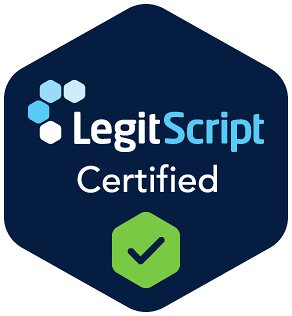Do you feel like you’re constantly swimming against the current? Everyday tasks that others manage with ease, like meeting deadlines, staying organized, or maintaining focus, can seem like monumental challenges. The frustration of misplacing important items, missing appointments, or struggling to complete tasks can be overwhelming. If this resonates with you, know that you’re not alone. Many adults face these hurdles daily, leading to feelings of frustration and self-doubt.
While medication is a common approach to managing ADHD, it’s not the only path. Many individuals seek alternative treatments that align more closely with their personal preferences and lifestyles. Exploring these options can open doors to new strategies and coping mechanisms that empower you to navigate life with greater ease.
In this guide, we’ll delve into various alternative treatments for ADHD, offering insights into how they work and how they might fit into your life. Our goal is to provide you with approachable and relatable information, helping you make informed decisions about your health and well-being.
Understanding ADHD
Attention-Deficit/Hyperactivity Disorder (ADHD) is a neurodevelopmental condition characterized by symptoms such as inattention, hyperactivity, and impulsivity. While often diagnosed in childhood, many individuals continue to experience symptoms into adulthood. These challenges can affect various aspects of life, including work performance, relationships, and daily responsibilities.
Why Consider Alternative Treatments?
Medication can be effective for many, but it’s not suitable for everyone. Some individuals may experience side effects, have health conditions that prevent medication use, or simply prefer non-pharmacological approaches. Alternative treatments offer additional strategies to manage ADHD symptoms, focusing on lifestyle changes and holistic practices.
Alternative Treatments for ADHD
Here are several alternative treatments that have shown promise in managing ADHD symptoms:
1. Behavioral Therapy
Working with a therapist can help develop strategies to manage ADHD symptoms. This may include creating routines, improving organizational skills, and setting achievable goals. Behavioral therapy focuses on modifying negative patterns and reinforcing positive behaviors.
2. Mind-Body Practices
Practices such as yoga and meditation can promote relaxation and improve focus. Regular engagement in these activities may help reduce hyperactivity and enhance concentration. Incorporating mindfulness techniques into daily routines can provide a sense of calm and control.
3. Dietary Adjustments
Maintaining a balanced diet rich in fruits, vegetables, and whole grains can support overall well-being. Some individuals find that reducing sugar intake and avoiding food additives may help alleviate certain ADHD symptoms. Consulting with a healthcare provider can guide personalized dietary changes.
4. Regular Physical Activity
Engaging in regular exercise can improve mood, reduce stress, and enhance cognitive function. Activities like walking, swimming, or cycling can be beneficial in managing ADHD symptoms. Establishing a consistent exercise routine can contribute to better focus and impulse control.
5. Neurofeedback
This technique involves training individuals to regulate their brain activity. While research is ongoing, some studies suggest that neurofeedback may help improve attention and reduce impulsivity in individuals with ADHD. It’s important to consult with a qualified professional to determine if this approach is suitable. A 2023 review concluded that neurofeedback is a significant non-pharmacologic treatment option for individuals with ADHD, showing moderate effectiveness in symptom management. However, the study noted variability in treatment efficacy due to factors such as treatment intensity and type of EEG equipment used.
6. Supplements
Certain supplements, such as omega-3 fatty acids, have been explored for their potential benefits in managing ADHD symptoms. While some evidence suggests modest improvements, it’s crucial to discuss supplement use with a healthcare provider to ensure safety and appropriateness.
Integrating Alternative Treatments into Daily Life
Adopting new strategies can be challenging, but small, consistent changes can lead to significant improvements. Here are some practical tips:
- Start Small: Introduce one change at a time to avoid feeling overwhelmed.
- Set Realistic Goals: Establish achievable objectives to build confidence and momentum.
- Seek Support: Engage with support groups or trusted individuals to share experiences and gain encouragement.
- Monitor Progress: Keep track of changes and their effects to identify what works best for you.
When to Seek Professional Guidance
While alternative treatments can be beneficial, it’s essential to consult with healthcare professionals when considering changes to your ADHD management plan. They can provide personalized advice, ensure that chosen strategies are safe, and help monitor progress.
A Quick Word on HU Centers
At HU Centers, we understand that ADHD doesn’t look the same for everyone. That’s why we don’t believe in one-size-fits-all solutions. Whether you’re exploring traditional routes or looking for alternative treatments for ADHD, we’re here to help you find a plan that respects who you are.
We don’t treat you like a list of symptoms. We work with your story because your story matters.
Conclusion: Healing Isn’t Always Found in a Pill
If you’ve ever felt like ADHD treatment was too cold, too clinical, or just not made for someone like you… We get it.
The truth is, medication isn’t the only path, and it doesn’t have to be the first one either. There are many alternative treatments for ADHD that are gentle, supportive, and focused on your daily life. Things you can start doing today. Things that make you feel like you’re taking your power back.
You don’t have to fix everything overnight. You just have to start.
And if you’re looking for a place that sees you, not just your diagnosis, HU Centers is ready to walk this road with you.
Let’s find a better way, together.
FAQs
Q. What are alternative treatments for ADHD?
A. Alternative treatments for ADHD are non-medication options that help manage symptoms. These include therapy, exercise, diet changes, coaching, and mindfulness. They’re great for people who don’t respond well to medication or want a more natural approach to improving focus, mood, and daily life.
Q. Can diet and nutrition help with ADHD symptoms?
A. Yes, some people find that eating high-protein meals, reducing sugar, and adding omega-3s helps with focus and energy. While food isn’t a cure, a balanced diet can support the brain and is a simple alternative treatment for ADHD with long-term benefits.
Q. Is therapy useful for ADHD without taking medication?
A. Definitely. Cognitive Behavioral Therapy (CBT) is a powerful tool for managing ADHD. It helps people understand their thoughts, build healthy routines, and reduce stress. For many, therapy works well as an alternative treatment for ADHD, especially when combined with lifestyle changes.
Q. What role does exercise play in treating ADHD naturally?
A. Exercise boosts dopamine levels, which helps improve attention, mood, and memory. Simple activities like walking, biking, or dancing can calm the mind and reduce restlessness. Regular movement is one of the most effective alternative treatments for ADHD without needing medication.
Q. Are natural supplements safe for ADHD?
A. Some natural supplements like magnesium, zinc, and omega-3s may help ADHD symptoms. But they’re not for everyone. Always talk to a healthcare provider before using them. Supplements can support treatment, but they should never replace professional advice or proper diagnosis.
Q. How do I know if alternative ADHD treatments are right for me?
A. If medication hasn’t helped or causes side effects, alternative treatments for ADHD might be a better fit. Start with small changes, like better sleep, diet, or therapy, and see how you feel. It’s about finding what works best for your lifestyle and needs.










